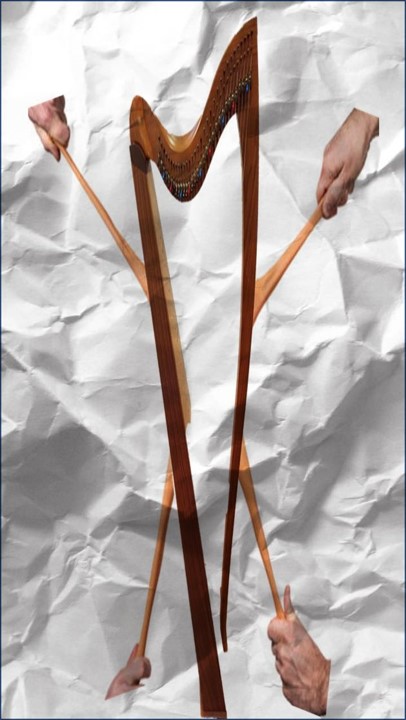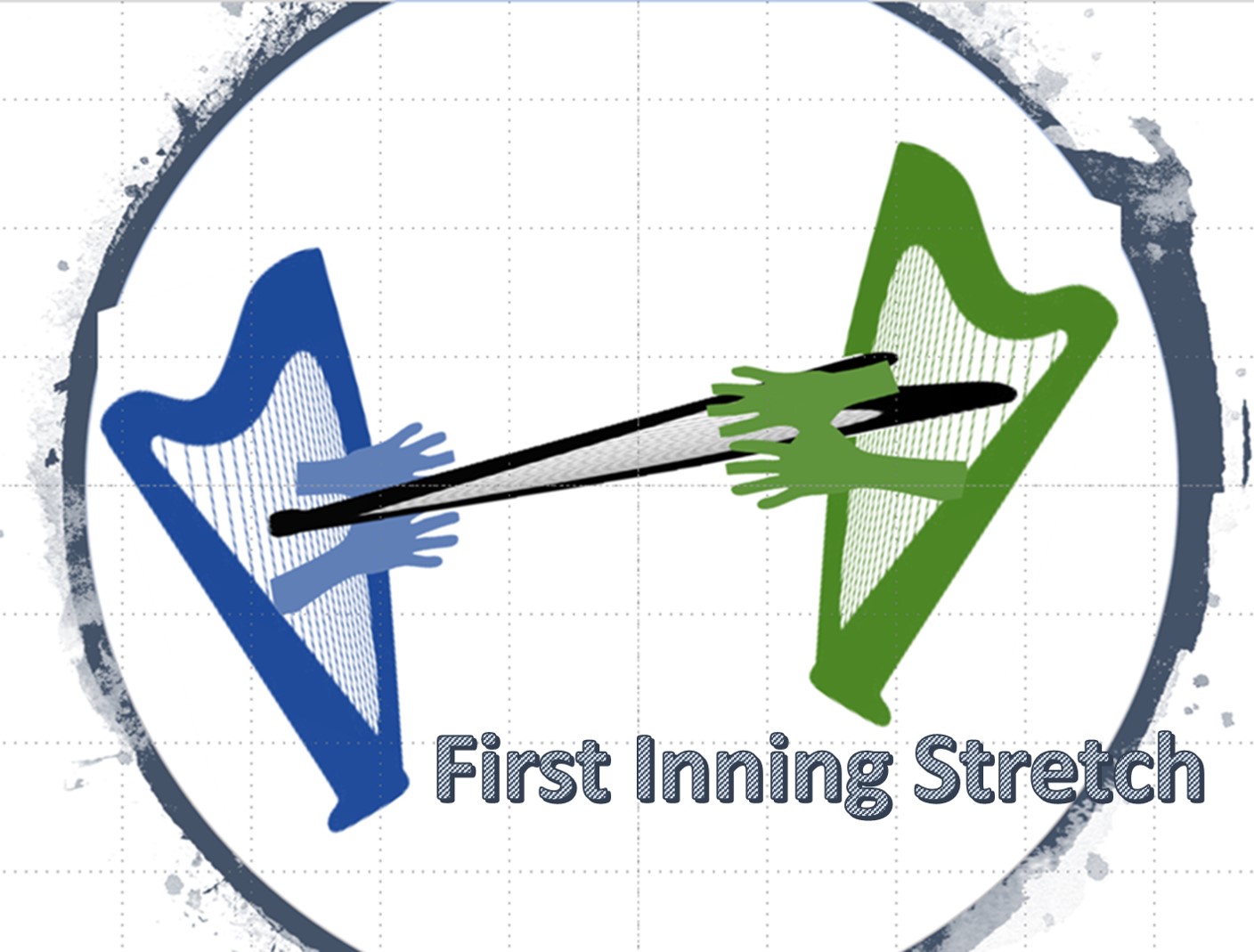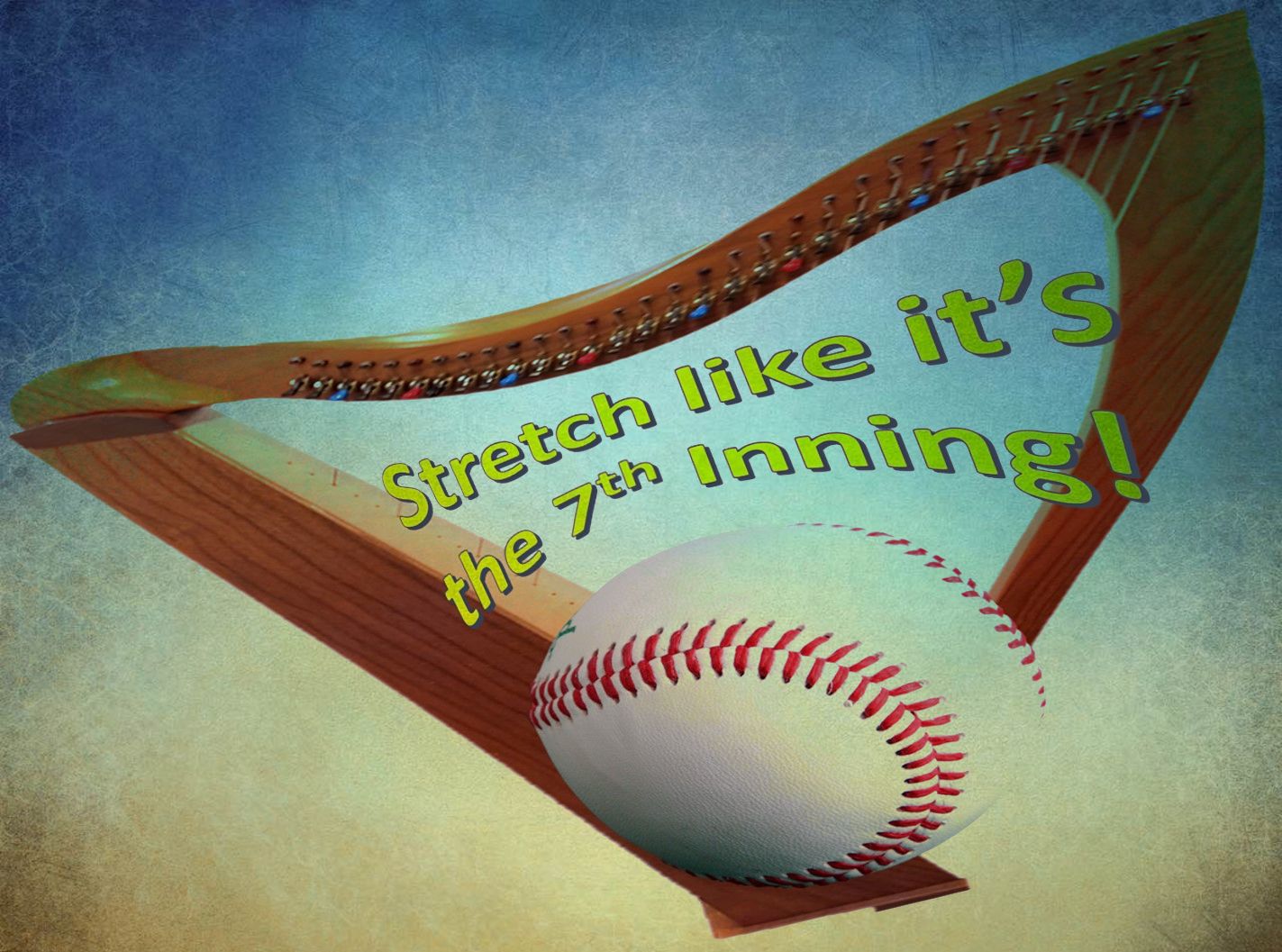So, throughout August we have stretched our artisticness away from the harp. We’ve stretched our bodies and we’ve stretched our repertoires. What could possibly be left?
Maybe the most important part. Have you stretched you?
I hear you grumbling. I’m all stretched out. Yes, I’ve stretched me.
But have you stretched all of you?
 Have you stretched to playing for others, in new places? For new audiences? Have you put yourself out there to share your art? Have you stretched emotionally?
Have you stretched to playing for others, in new places? For new audiences? Have you put yourself out there to share your art? Have you stretched emotionally?
I really thought I had. I’d played for all kinds of people. What could be left? And then I was asked to play for first graders! Wow! A very different audience that I had never even thought of. They were great! Just imagine what I would have missed if I had said no. Was it out of my comfort zone? Oh yeah – I couldn’t even see it from my comfort zone! But if I had to take a chance, what a great place to land!
How about that gig that isn’t your norm? I booked that one. Now I’m learning a tune that I’d never select – a pop tune I have always hated! But, now that I’m working on it, while I don’t like the tune any better than before, I can appreciate its rhythmic qualities. And I can respect the technique that I need to play it accurately. It is drawing on skills I rarely use. So, I also got to stretch my practice routine to boot!
How about finding a new way to share with friends, family, or audiences? Have you taken the opportunity to unguard your heart (you know, the one that’s in your mouth when you contemplate something new, different, and challenging!) and share just a bit of the joy you find in playing? Or some other emotion – loss? happiness? contemplation? contentment?
Stretching to share your emotions can be very freeing. You know, after the freefall of terror. As we’ve identified before, stretching can be many (good) things, and here are six:
- Stretching is the opposite of static and facing things straight on is definitely not static! Meeting your resistance to something will help you keep moving, growing, developing.
- Stretching makes you flexible. When you’re sharing with others, you can telegraph what you’re feeling. Being flexible gives you the opportunity to change up what you’re doing to suit your audience (and yourself). I try to have a couple of options available for each program – for those times when noting is coming together. I want to convey to the listener that, even in the face of [pick one: forgetting how the tune goes, being unable to exert any control over my fingers, starting in the wrong key, (why yes, I have done all these things and more – in front of audiences)], I’m glad to be there with them, and grateful to know that they’re on my side, even if I can’t seem to conjure any knowledge of how to play the harp!
- Stretching helps alleviate stiffness – and putting yourself out there might make you feel stiff (terrified stiff?). Nothing like working on music way beyond the pale of your favorites will help you approach new, different things with more freedom – that comes from the comfort of being less stiff as you approach the music…or the audience. Remember to “bend your knees” musically. Just imagine what I might do with that tune I hate (after I deliver it for the gig – I could completely rejigger it (perhaps literally – make it into a jig? Just an idea – I’m flexible like that!)
- Stretching helps relieve stress. Don’t you ever think that you’re the only one who feels stress (nervousness, tension, etc.) when you’re performing. We all do – even your harp hero! If you’ve done the stretches we have been talking about, you will be more comfortable no matter where you play. And that will help you feel less stress while you are playing. Don’t get me wrong – you might feel a little bit of nervousness (and research suggests that this actually helps you play better) but you won’t have that heart-pounding, breath-stealing paralysis that gets in the way (ok, you can call it stage fright, but I can only focus on how I can’t breathe…until I remember that I’m looking forward to playing…once I get started!).
- Stretching helps develop and maintain focus. By stretching yourself to new audiences, you have to focus on them to share all that you have brought. You will, of course, get better at this with practice, so keep at it! And remember to focus on the good – you know your music, you enjoy playing, and they will love you!
- Stretching stretches you. You will definitely benefit from sharing yourself and your music with others. Open your heart and give your gift. Do not worry about receiving a gift in return – just enjoy the delightful feeling of giving! And keep on giving as you stretch yourself again and again.
So, as the end of summer nears and we have stretched ourselves in so many ways – physically, artistically, emotionally, and through our repertoire. Each of these aspects of playing are essential – and stretching in each of them helps keep you flexible – ready to take on any challenge and not only succeed but also the enjoy it! Now that you’re all stretched – what will you take on next? Let me know in the comments!



